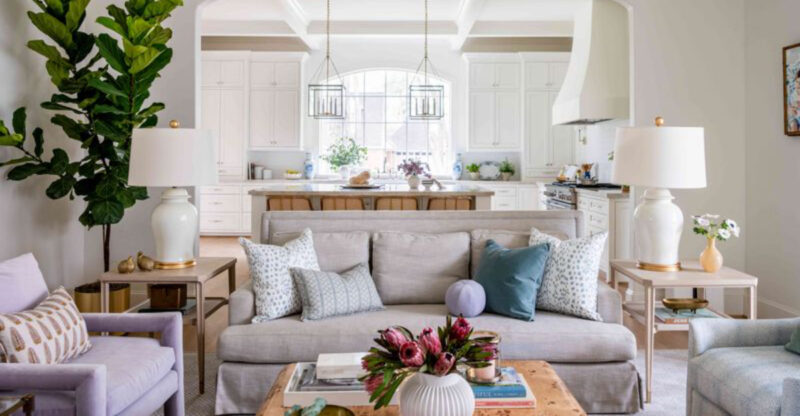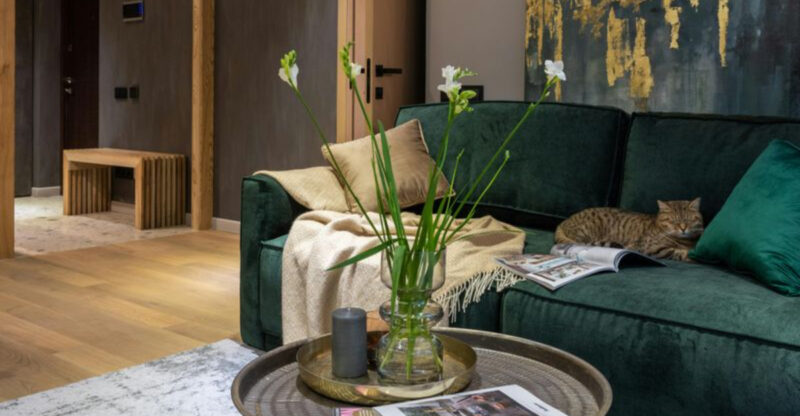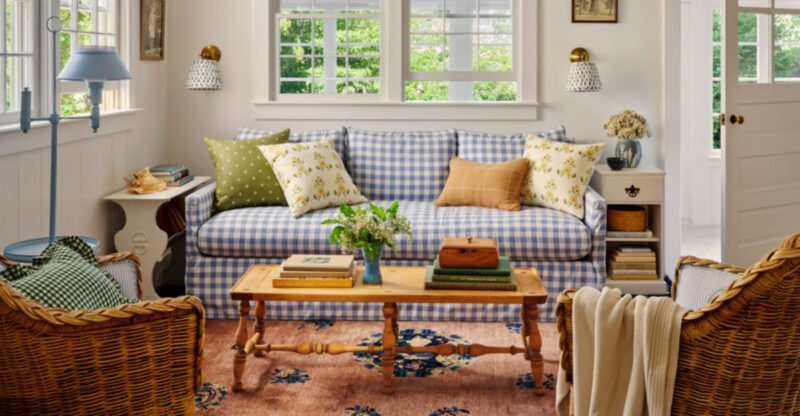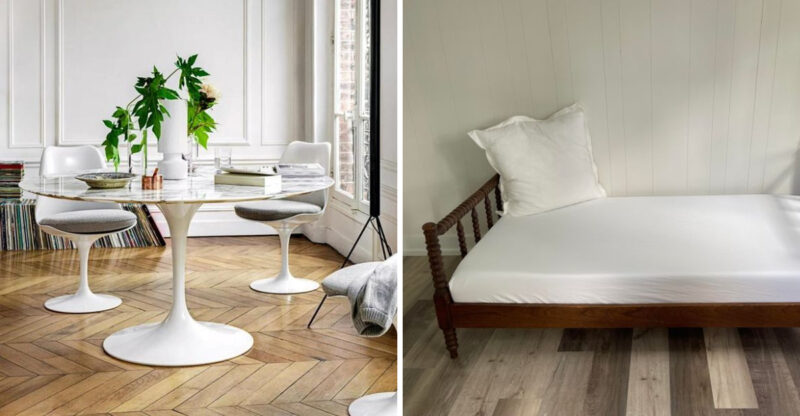8 Michigan Farmhouse Tables Built To Last
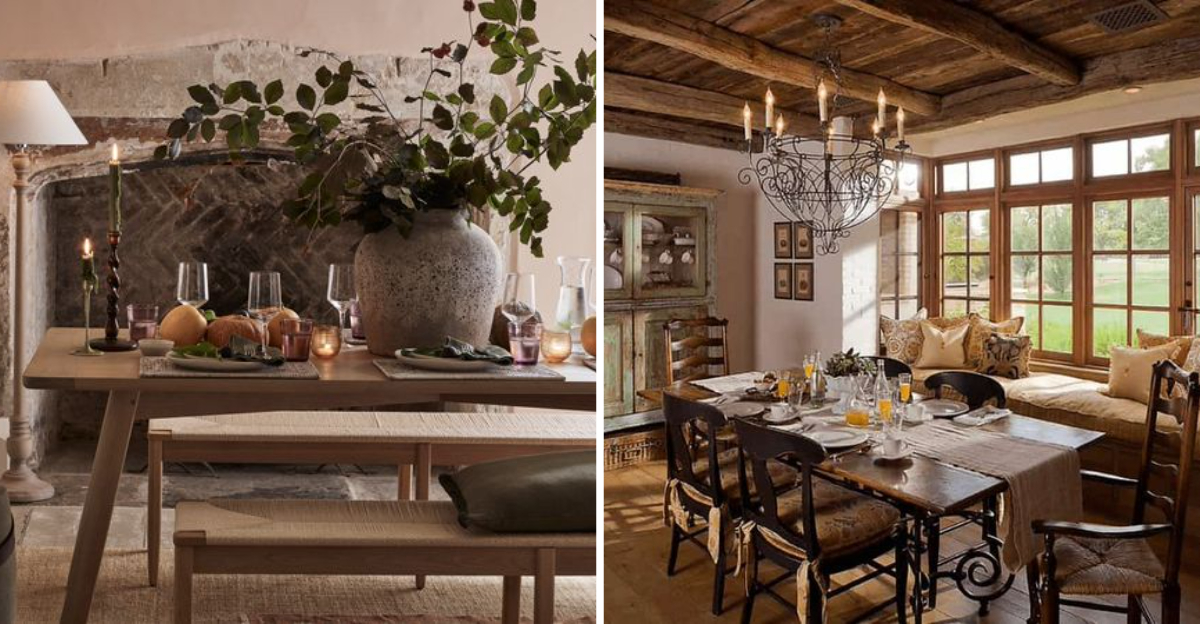
The farmhouse table has long been a centerpiece of daily life, built for shared meals, family stories, and the kind of wear that only makes it more beautiful over time. Crafted with sturdy hardwoods and finished with care, these tables bring warmth and strength to any home.
In Michigan, makers carry on a tradition of woodworking that blends rustic heritage with practical design, turning simple slabs of timber into heirloom pieces meant to last for generations.
From cottages near the lakes to farmhouses on open fields, these tables reflect both the character of the landscape and the craftsmanship of the people who build them.
1. Solid Hardwood Farmhouse Tables
Michigan’s abundant forests provide cherry, oak, and maple woods that transform into stunning dining tables. Each wood type brings its own character – cherry darkens beautifully with age, oak displays prominent grain patterns, and maple offers buttery smoothness.
Local artisans select premium cuts, ensuring tables resist warping and wear. With proper care, these solid pieces become family heirlooms, growing more beautiful with each passing decade.
2. Reclaimed Wood Farmhouse Tables
Salvaged from century-old barns and historic buildings across the Great Lakes state, these tables tell stories through every nail hole and weathered mark. The aged timber – often oak, pine, or hemlock – carries unique patinas impossible to replicate in new materials.
Environmental benefits match the aesthetic appeal. By repurposing wood that might otherwise be discarded, craftspeople create sustainable pieces with authentic Michigan heritage built into every inch.
3. Amish-Made Farmhouse Tables
Craftsmanship reaches its pinnacle in Michigan’s Amish communities, where furniture-making traditions remain largely unchanged for generations. Without power tools, Amish woodworkers rely on hand-planing, precise joinery, and time-tested techniques.
The results speak volumes – perfectly flush joints, silky-smooth surfaces, and rock-solid construction. Many Amish craftsmen sign and date their work, creating documented heirlooms that families treasure for decades.
4. Live-Edge Farmhouse Tables
Nature’s artistry takes center stage with these distinctive tables featuring at least one uncut edge. The natural contours of the tree remain intact, creating flowing, organic lines that contrast beautifully with straight-edged furniture.
Michigan woodworkers carefully select slabs with interesting characteristics – burls, knots, and grain patterns that tell the tree’s life story. Clear epoxy often fills natural voids, preserving imperfections while creating smooth, functional surfaces.
5. Expandable Farmhouse Tables
Clever engineering meets traditional design in these versatile pieces. Hidden leaf systems transform intimate four-person tables into grand dining surfaces accommodating holiday gatherings of twelve or more guests.
Michigan craftspeople excel at creating robust expansion mechanisms that work flawlessly decade after decade. The most impressive designs feature self-storing leaves and gear-driven extensions that operate with just one person, making transformation quick and effortless.
6. Custom Metal-And-Wood Farmhouse Tables
Forged steel meets Michigan timber in these striking contemporary designs. Blacksmiths and woodworkers collaborate to create industrial-inspired pieces that balance warmth and edge.
Metal bases – often featuring X-braces, hairpin legs, or custom geometric patterns – provide rock-solid foundations. The contrast between cold metal and warm wood creates visual tension that draws the eye, while showcasing both materials’ natural beauty.
7. Rustic Trestle And Pedestal Farmhouse Tables
Architectural elements take center stage in these statement pieces. Substantial trestle bases with through-tenon joinery or turned pedestals create dramatic silhouettes that command attention in any dining space.
Unlike four-legged tables, these designs eliminate awkward corner legs, allowing more comfortable seating. Michigan craftspeople often incorporate traditional design elements like bread board ends, hand-carved details, and distressed finishes that celebrate historical furniture-making techniques.
8. Farmhouse Tables With Matching Benches
Complete dining ensembles create cohesive gathering spaces where family stories unfold. Matching benches offer flexible seating – comfortably accommodating growing families and unexpected guests with ease.
Michigan woodworkers often design bench seats with slight contours for improved comfort during long meals. Many craftspeople offer coordinating chair options too, allowing homeowners to mix seating styles for a collected-over-time look that never feels cookie-cutter.

